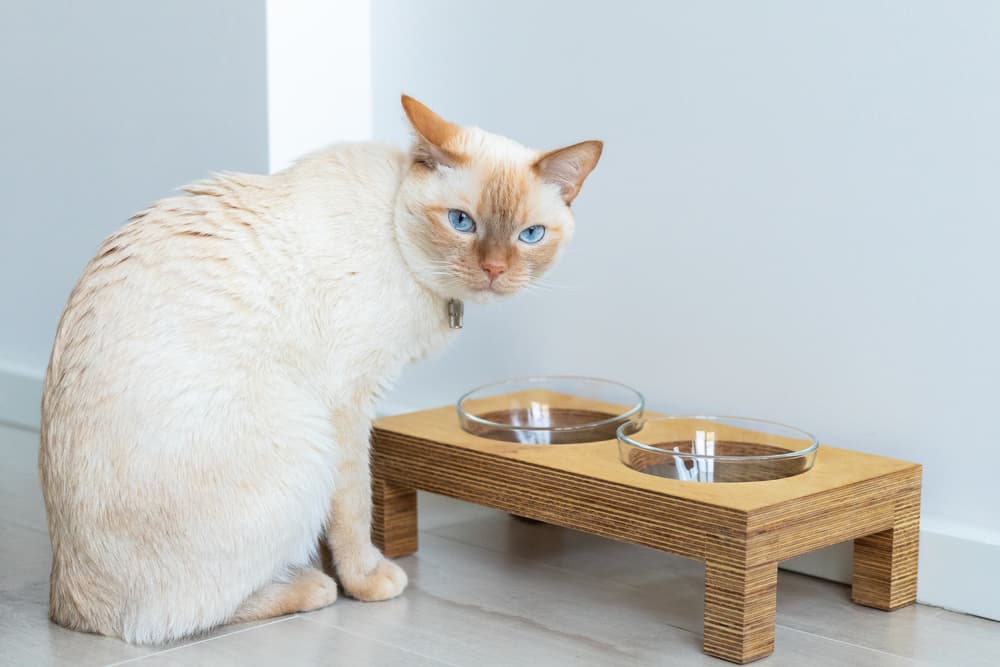Urinary crystals are a common health concern in cats, often leading to discomfort and more serious urinary tract issues. A proactive approach to dietary management can play a crucial role in preventing these problems. This article explores the best non-prescription cat foods for managing and preventing urinary crystals in felines.
Understanding Urinary Crystals in Cats
- Types of Urinary Crystals: Cats commonly develop two types of urinary crystals: struvite and calcium oxalate. Each type has different dietary considerations for prevention.
- Causes and Risks: Factors contributing to crystal formation include dehydration, excessive dietary minerals, and imbalanced urinary pH. Crystals can lead to urinary tract infections (UTIs) and urinary blockages.
Dietary Goals for Preventing Urinary Crystals
- Moisture Content: Adequate hydration is key in preventing crystal formation. Wet cat foods or moistened dry foods can significantly increase a cat’s water intake.
- Balanced Mineral Levels: Diets with controlled levels of minerals like magnesium, phosphorus, and calcium are essential to prevent the formation of crystals.
- Urinary pH Balance: Maintaining an optimal urinary pH through diet can prevent crystal development. Foods formulated for urinary health often target a specific pH range.
Reviewing Top Non-Prescription Cat Food Brands for Urinary Health
- Purina One Urinary Tract Health Formula: Designed to reduce urinary pH and provide low dietary magnesium.
- Pros: Easily accessible and affordable. Promotes urinary tract health.
- Cons: Contains some grain and by-product meals.
- Price: Around $20 for a 16-lb bag.
- Availability: Widely available in supermarkets and pet stores.
- Royal Canin Urinary Care: Formulated to help maintain a healthy urinary system in adult cats.
- Pros: Balances mineral content, and targets a healthy urinary pH.
- Cons: Higher price point, contains corn and wheat.
- Price: Approximately $30 for a 6-lb bag.
- Availability: Pet stores and online retailers.
- Hill’s Science Diet Adult Urinary Hairball Control: Combines urinary health support with hairball control.
- Pros: Supports the health of the whole urinary system. Contains natural fiber to reduce hairballs.
- Cons: Contains grains and chicken by-product meal.
- Price: About $40 for a 15.5-lb bag.
- Availability: Pet stores, vet clinics, and online.
- Blue Buffalo Natural Veterinary Diet W+U Weight Management + Urinary Care: Offers a dual-action formula for weight and urinary health.
- Pros: Grain-free, no chicken by-product meals.
- Cons: On the expensive side.
- Price: Around $40 for a 6-lb bag.
- Availability: Select veterinary clinics and online.
- Iams Proactive Health Adult Urinary Tract Health: Reduces urinary pH and maintains low dietary magnesium.
- Pros: Affordable, promotes good urinary tract health.
- Cons: Contains chicken by-products and cornmeal.
- Price: Approximately $15 for a 7-lb bag.
- Availability: Easily found in most pet stores and online.
The Role of Water in Urinary Health
- Encouraging Hydration: Utilize cat water fountains, keep multiple water bowls, or add water to dry food to encourage drinking.
- Benefits of Wet Food: Incorporating wet food into the diet can significantly increase a cat’s water intake, which is beneficial for preventing urinary crystals.
Additional Dietary Considerations
- Choosing Between Wet and Dry Food: While wet food is generally preferred for its higher moisture content, some dry foods are specifically formulated to support urinary health.
- Supplements and Additives: Consider supplements like omega-3 fatty acids or antioxidants that support overall urinary tract health.
FAQs About Non-Prescription Cat Food for Urinary Crystals
- How can diet prevent urinary crystals? A diet that manages mineral intake, urinary pH, and hydration can reduce the risk of crystal formation.
- What should I look for in a non-prescription urinary health cat food? Seek foods with controlled mineral content, ingredients that support a healthy urinary pH, and high moisture levels.
- Can changing cat food resolve existing urinary crystals? Diet can help manage and reduce crystals, but it’s crucial to consult with a vet for proper diagnosis and treatment.
- How often should I feed my cat to prevent urinary issues? Consistent, portion-controlled meals can help maintain urinary health. Free feeding is generally not recommended.
- Are there specific ingredients to avoid for cats prone to urinary crystals? Avoid excessive minerals like magnesium and phosphorus, and aim for a balanced diet that supports a healthy urinary pH.
Conclusion
Choosing the right non-prescription cat food is a significant step in managing and preventing urinary crystals in cats. By focusing on moisture content, mineral balance, and urinary pH, along with regular veterinary check-ups, you can help maintain your cat’s urinary health.

Jane Doe, a veterinarian with over 10 years of experience, combines her deep knowledge of animal health with a passion for pet welfare at PetsPonder.com. With a DVM degree and a commitment to the latest in veterinary science, Jane Doe offers reliable, compassionate advice to help pet owners make informed decisions for their furry companions.

Leave a Reply